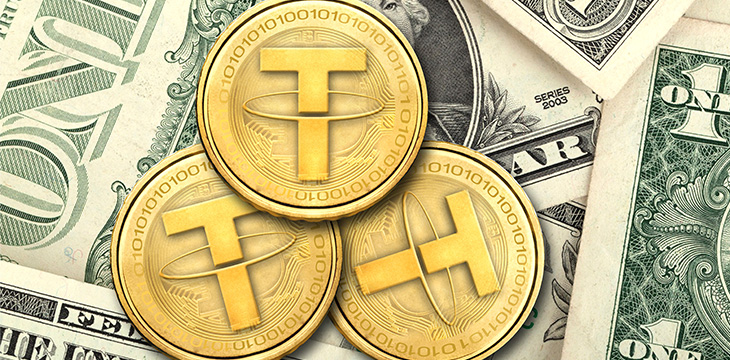|
Getting your Trinity Audio player ready...
|
When Tether launched its stablecoin, the USDT, it was pegged to the U.S. dollar. Every token was, and always would be, linked to a single value’s dollar. That seems like a valid setup for managing a cryptocurrency as an alternative to fiat, but the claim was repeatedly viewed as dubious. If there was any doubt over whether or not Tether knew what it was doing, that doubt has now been removed and it is apparent that it doesn’t. In a recent interview with Bloomberg, even the company’s own co-founder stated that it doesn’t matter if Tether is backed solidly. Actually, it does.
Bloomberg’s Lisa Abramowicz and Paul Sweeney hosted an interview with William Quigley, co-founder of Tether and the CEO of the Worldwide Asset eXchange (WAX). In a tweet posted by Abramowicz, she states, “A co-founder of Tether says it doesn’t really matter if the stablecoin is backed by exactly the right number of dollars if investors believe each coin to be worth $1.”
Quigley apparently doesn’t understand how stablecoins are supposed to work. Yes, it does matter, since that is exactly what a stablecoin is supposed to offer. Quigley appears to be saying that only appearances matter, which is exactly what many Ponzi scheme operators would have investors believe, as well.
Questions had always surfaced about how legitimate that claim was, especially since Tether would never allow a third-party auditor review its books. The company asserted that it would be “too complicated,” an odd assertion, given that several other stablecoins have been more than willing to invite auditors into their finances. It recently became apparent, by Tether’s own admission, that the USDT was no longer pegged to the dollar but, instead, was pegged to a combination of fiat, cryptocurrency and investment money.
The comments should raise serious flags about Tether’s operations, especially given what has transpired between the company and the Bitfinex exchange. The amount of shady deals on the part of each entity, and their collusion, have to begin to worry regulators, as well as investors. Tether executives have asserted that they have no contractual requirement to force them to play by the rules, which is another way of saying that investors have no legal recourse when all their money suddenly disappears.

 02-26-2026
02-26-2026 




